

Some people say, “Krishna tells Arjuna in the Gita that the soul is eternal — therefore, there’s nothing wrong in killing anyone.” That’s a distortion of the Gita’s message.
Let’s consider the implications of the soul’s indestructibility (02.22).
What the soul’s indestructibility implies: The soul aspires for a destiny far bigger than mere bodily survival, which anyway is impossible beyond the body’s finite lifespan. The soul’s destiny is liberation to eternal life. We are meant to act with our body in a way that furthers the soul’s liberation. Usually, we can pursue spiritual liberation while simultaneously taking due care of our body, and our loved ones’ bodies. But some emergency situations may require us to choose between the body’s survival and the soul’s evolution. One such emergency was the war confronting Arjuna. In such situations, he needed to focus on the soul even at the cost of the body.
What the soul’s indestructibility doesn’t imply: It doesn’t at all justify indiscriminate killing, by deeming it just destruction of the temporary body. Though non-eternal, the body is a vital tool for the soul to progress toward realizing its eternality. Moreover, the body is an abode of the Divine (18.61). By giving it due respect through hygiene and healthcare and by using it for doing our social responsibilities in a mood of devotional service, we can gradually realize that our body is actually a temple of the Lord. Highlighting the vision of the body as sacred, the Mahabharata narrates how even the most bellicose of Arjuna’s brothers, Bhima, refused to step over the body of a monkey, who was later revealed to be the illustrious Hanuman. Those who understand the sanctity of the body consider it disrespectful to even touch anyone’s body with their feet — how, then, can they indiscriminately destroy anyone’s body?
One-sentence summary:
The soul’s indestructibility implies that we prioritize the soul’s elevation over the body’s protection when the two conflict; it doesn’t imply that we can indiscriminately destroy anyone’s body.
Think it over:
- What does the soul’s indestructibility imply?
- Though the body is temporary, why is it important for the soul?
- How can we realize the sanctity of the body?
***
02.23: The soul can never be cut to pieces by any weapon, nor burned by fire, nor moistened by water, nor withered by the wind.
To know more about this verse, please click on the image

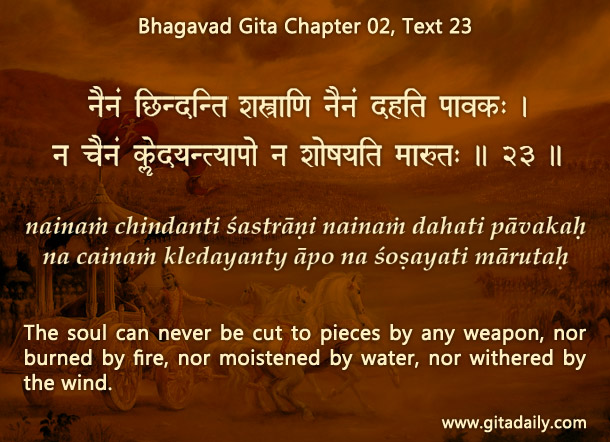



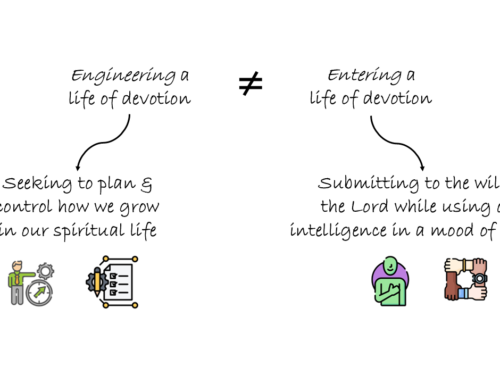






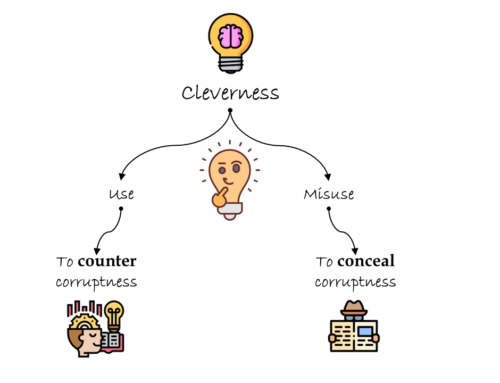

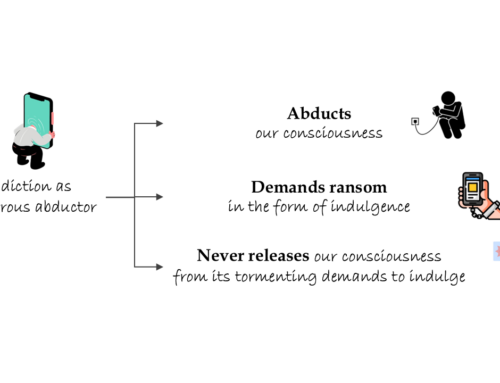
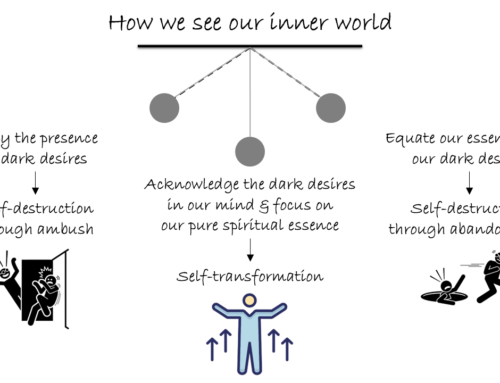
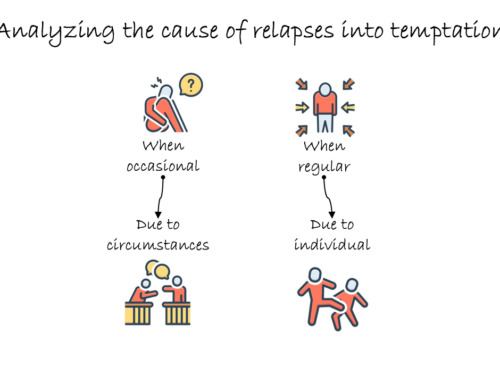

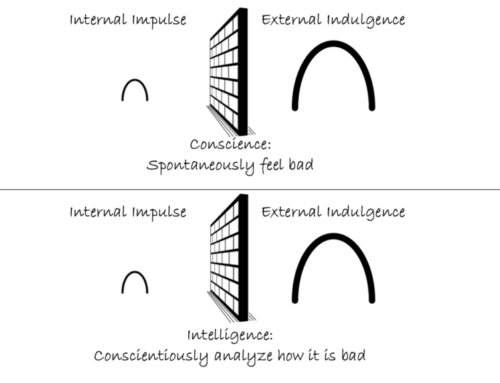

Hare Krishna
…Because they are atomic individual souls eternally (sanatana), they are prone to be covered by the illusory energy, and thus they become separated from the association of the Supreme Lord, just as the sparks of a fire, although one in quality with the fire, are prone to be extinguished when out of the fire…
This makes me want to cry like a child.
…In the Varaha Purana, the living entities are described as separated parts and parcels of the Supreme. They are eternally so, according to the Bhagavad-gita also. So, even after being liberated from illusion, the living entity remains a separate identity, as is evident from the teachings of the Lord to Arjuna. Arjuna became liberated by the knowledge received from Krishna, but he never became one with Krishna.
Also, Bg. 18.61 – The Supreme Lord is situated in everyone’s heart, O Arjuna, and is directing the wanderings of all living entities, who are seated as on a machine, made of the material energy.
Purport
Arjuna was not the supreme knower, and his decision to fight or not to fight was confined to his limited discretion. Lord Kṛṣṇa instructed that the individual is not all in all. The Supreme Personality of Godhead, or He Himself, Kṛṣṇa, as the localized Supersoul, sits in the heart directing the living being. After changing bodies, the living entity forgets his past deeds, but the Supersoul, as the knower of the past, present and future, remains the witness of all his activities. Therefore all the activities of living entities are directed by this Supersoul. The living entity gets what he deserves and is carried by the material body, which is created in the material energy under the direction of the Supersoul. As soon as a living entity is placed in a particular type of body, he has to work under the spell of that bodily situation. A person seated in a high-speed motorcar goes faster than one seated in a slower car, though the living entities, the drivers, may be the same. Similarly, by the order of the Supreme Soul, material nature fashions a particular type of body to a particular type of living entity so that he may work according to his past desires. The living entity is not independent. One should not think himself independent of the Supreme Personality of Godhead. The individual is always under the Lord’s control. Therefore one’s duty is to surrender, and that is the injunction of the next verse.
The word – SPELL – here is very significant. Spell, that confirms that we are under illusory energy.
Ys,
Apt comment.
SOUL is born before universe and beyond material existence